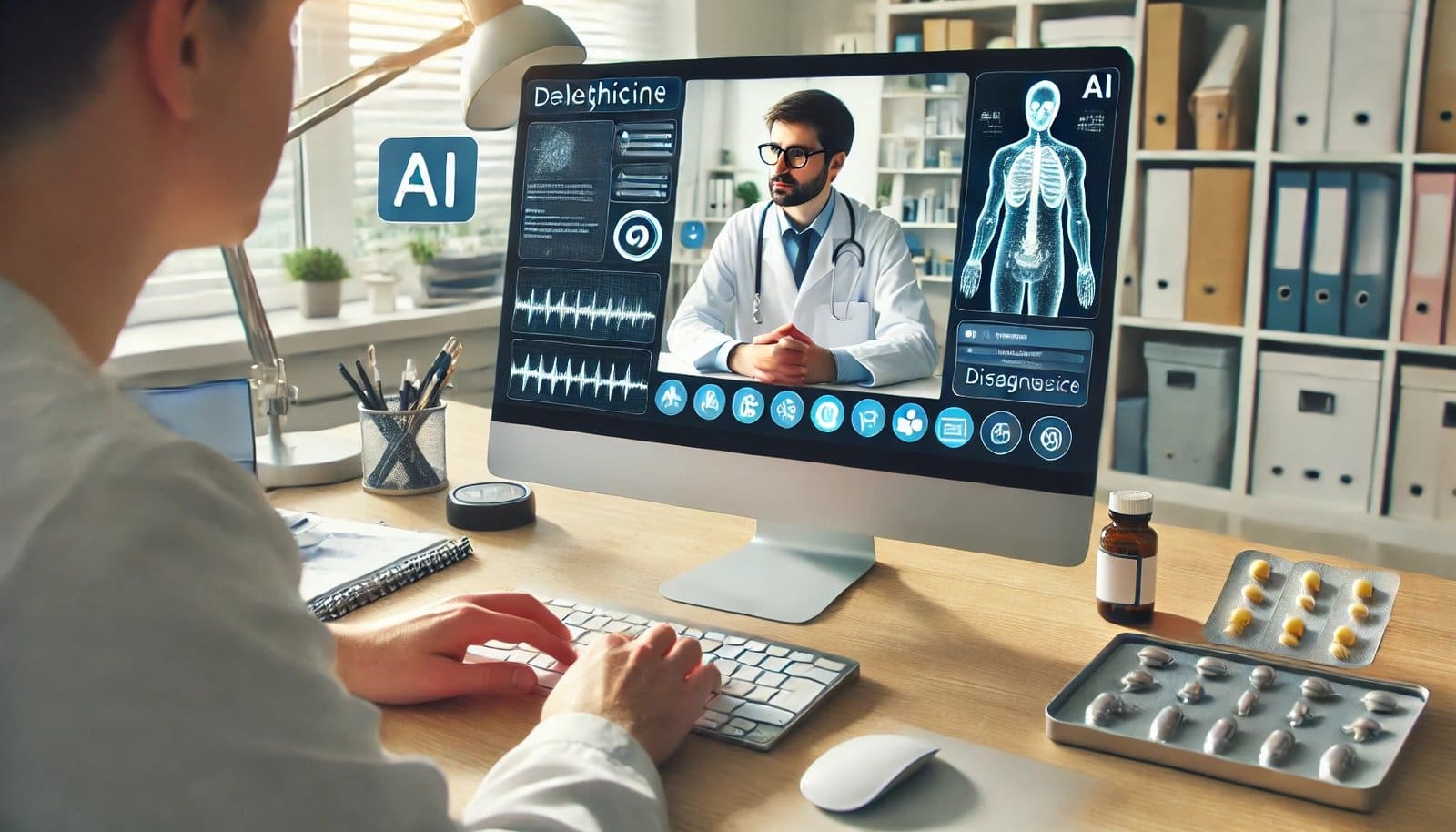Artificial intelligence (AI) and machine learning (ML) are transforming telemedicine by enhancing diagnostic accuracy, personalizing treatment plans, and improving overall healthcare delivery. Here’s how AI and ML are being integrated into telemedicine and the benefits they offer.
Benefits of AI and Machine Learning in Telemedicine
- Enhanced Diagnostic Accuracy
AI algorithms can analyze medical images, patient data, and historical health records to assist healthcare providers in making accurate diagnoses. This helps identify conditions that might be missed during traditional consultations. - Personalized Treatment Plans
Machine learning models can analyze a patient’s unique health data to create personalized treatment plans. These plans consider individual risk factors, genetic information, and lifestyle habits to optimize care. - Predictive Analytics
AI-powered predictive analytics can forecast potential health issues based on current and historical data. This allows for early interventions and proactive management of chronic conditions. - Efficient Data Management
AI streamlines the management and analysis of large volumes of patient data. It can extract relevant information from electronic health records (EHRs) and provide actionable insights for healthcare providers. - Improved Patient Monitoring
Wearable devices equipped with AI can continuously monitor vital signs and health metrics. These devices alert healthcare providers to any concerning changes, enabling timely interventions.
Applications of AI and Machine Learning in Telemedicine
- Virtual Health Assistants
AI-powered virtual health assistants can provide patients with medical advice, answer health-related questions, and remind them to take medications. These assistants enhance patient engagement and adherence to treatment plans. - Remote Diagnostics
AI tools can analyze data from remote monitoring devices, such as ECGs or blood glucose monitors, to diagnose conditions and recommend treatments. This reduces the need for in-person visits and speeds up the diagnostic process. - Telehealth Triage
AI algorithms can triage patients based on the severity of their symptoms, directing them to the appropriate level of care. This ensures that urgent cases receive immediate attention while less critical cases are managed efficiently. - Medical Imaging Analysis
AI systems can analyze medical images, such as X-rays, MRIs, and CT scans, to detect abnormalities and support radiologists in diagnosing conditions. This improves the accuracy and speed of image interpretation. - Natural Language Processing (NLP)
NLP technology enables AI to understand and process human language, allowing it to analyze clinical notes, patient feedback, and other text data. This helps in extracting valuable insights and improving documentation.
Integrating AI and Machine Learning into Telemedicine
- Selecting the Right Tools
Choose AI and ML tools that are compatible with your telemedicine platform and meet your practice’s needs. Ensure that these tools comply with healthcare regulations and data security standards. - Training and Education
Healthcare providers need to be trained on how to use AI and ML tools effectively. This includes understanding the capabilities and limitations of these technologies and interpreting their outputs accurately. - Data Security and Privacy
Implement robust data security measures to protect patient information. Ensure that AI tools comply with HIPAA and other relevant regulations to maintain patient privacy and confidentiality. - Continuous Monitoring and Evaluation
Regularly monitor and evaluate the performance of AI tools to ensure they provide accurate and reliable results. Update algorithms and models as needed to reflect the latest medical research and data.
Conclusion
AI and machine learning are revolutionizing telemedicine by enhancing diagnostic accuracy, personalizing treatment plans, and improving overall healthcare delivery. By integrating these technologies into telemedicine platforms, healthcare providers can offer more efficient, accurate, and personalized care to their patients. As AI and ML continue to evolve, their role in telemedicine will only expand, leading to better health outcomes and a more effective healthcare system. Embracing these innovations is essential for the future of telemedicine and modern healthcare.
